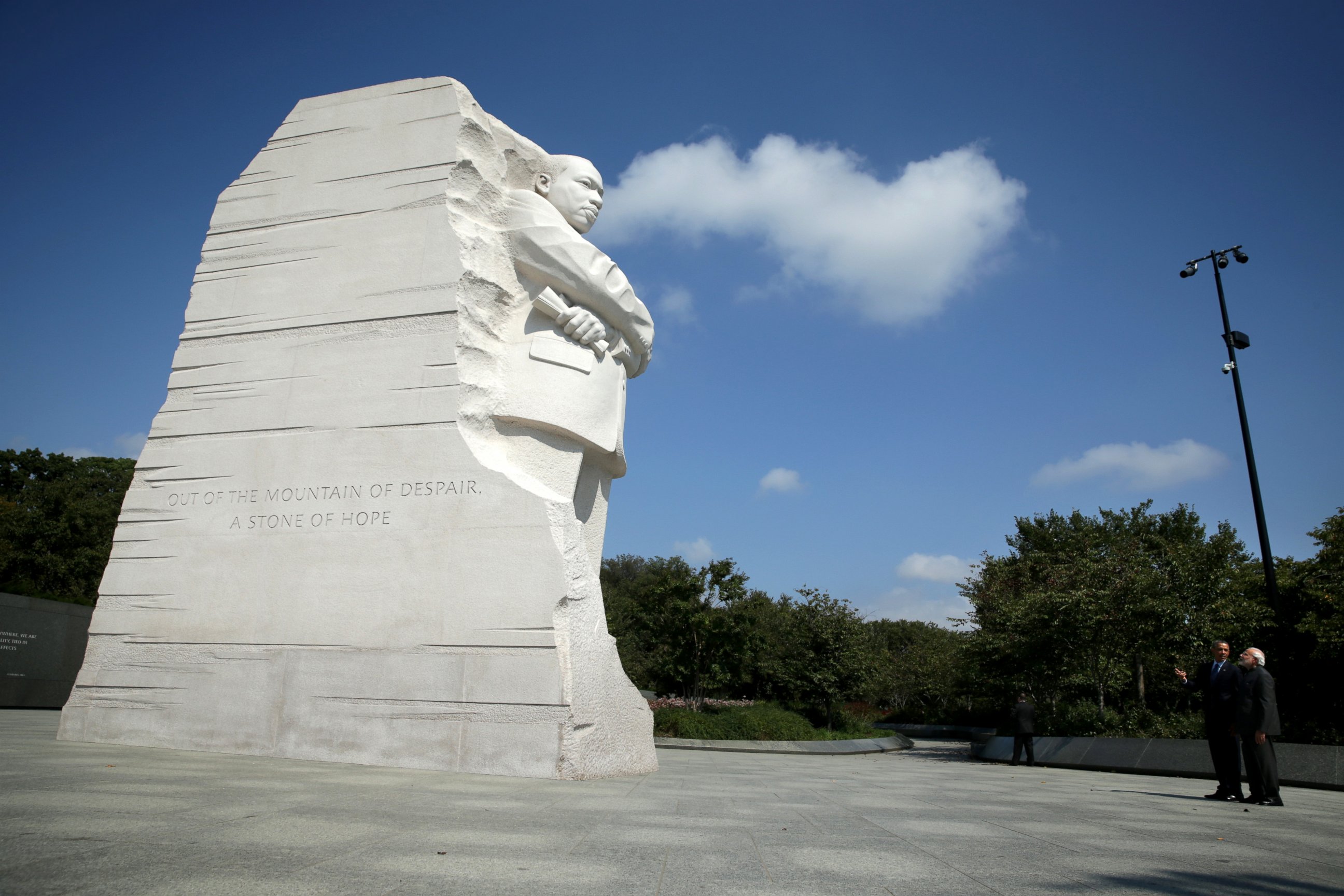My Bro Modi: President Obama’s Unlikely Friendship With a Right-Wing Hindu
The president is forging surprisingly close ties with a political extremist.
NEW DELHI — -- If there’s an Indian equivalent of President Barack Obama, Prime Minister Narenda Modi just might be it.
The rapidly budding friendship between the two leaders, catching many observers by surprise, stems from shared experiences with democratic organizing, a technological savvy, and deep personal ambition, U.S. officials say.
And it comes in spite of the fact that Modi is a right-wing Hindu extremist.
“He is in a party which has a lot of fringe views. They have views about India being a country only for Hindus,” said Milan Vaishnav, a leading India analyst with the Carnegie Endowment for International Peace. “He ideologically is of one with this movement.”
Many in Modi’s party are deeply fearful of Muslims, want to ban cow slaughter, and revise the nation’s textbooks to present a slanted history.
The views contrast sharply with Obama’s global advocacy for diverse multicultural societies where minority views and rights are protected and even openly celebrated.
But experts say a little bit of Obama may be rubbing off on his new “bro,” a friendly nickname he’s used to describe British Prime Minister David Cameron and other world leader he considers friends.
“We don't know what is in his heart but he is clever enough to recognize that destiny has given him this opportunity,” Ashley Tellis, a former senior adviser to the ambassador at the U.S. embassy in New Delhi, said of Modi. “Whatever his ‘real views’ are, he's going to be ruthlessly pragmatic because that's the ticket to political longevity and power.”
Obama doesn’t seem to mind. His hearty embrace and back slap of Modi on the tarmac after landing on Air Force One was replayed on loop on Indian TV.
The two men will spend more than 10 hours together Sunday in Delhi, including a joint visit to the memorial for the father of India, Mahatma Gandhi, a private lunch and meeting, a state dinner, and cultural celebration.
On Monday, they will be partners on stage for the elaborate Republic Day parade.
“Are they buddy-buddy? That’s for them to tell you about,” said Richard Rossow with the Center for Strategic and International Studies. "But more importantly for the president of the United States, he sees a counterpart that will actually try to deliver on things that are promised in those meetings."
On the surface, they would seem to be unlikely friends. Modi had been banned for 10 years from visiting the U.S. by the State Department for his alleged complicity in ethnic riots in 2002 that left thousands of Muslims dead in his home state.
After Modi was elected last year, the U.S. government was forced to take a different course by default, forging ties with a man with whom they had none and rescinding the visa ban allowing him to enter the U.S. They held their first bilateral summit in Washington in September.

“Personal relationships play a big role in who [leaders] choose to engage with, and I think there’s no better indication of the fact that they seem to have gotten along fine than the fact that the president agreed to go back so soon [to India]," said Rossow.
Deputy National Security Adviser Ben Rhodes said the administration sees a lot of Obama in Modi.
“In their first conversation after Prime Minister Modi’s election, I think they noted some similarities in terms of how their campaigns kind of changed the way in which politics was practiced in their respective countries,” he said.
They also came into office with super-sized expectations for bringing about political change. While Obama is in the twilight of his term, Modi is just beginning.
“Our hope is that the chemistry between the leaders and the personal relationship can lead to positive outcomes for our country," said Rhodes. "It’s worth the investment in the relationship with the country, the leader, and the people of India.”




